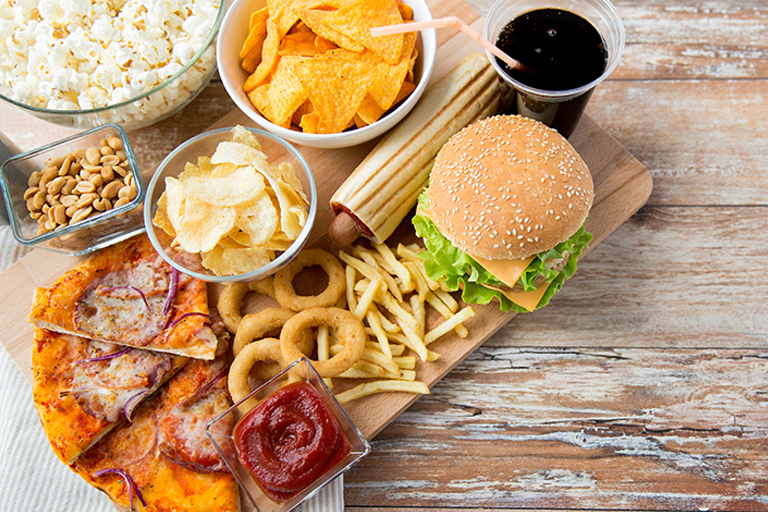Eating unhealthy snacks throughout the day is one way in which people ruin their diets. Unhealthy snacking can also cause weight gain. However, there are things you can do to avoid this bad habit. If you stay disciplined, you can meet all of your diet-related goals.
- Eat Nutrient-Rich Foods
Some people snack because they aren’t eating enough nutrient-rich foods during meal times. Sugary and salty foods have little nutritional value. After you eat them, you’re often hungry an hour later. However, if you make a habit of eating foods rich in vitamins and other nutrients, you’ll feel less hungry throughout the day.
Start the day with a filling, high-fiber food, such as a bowl of oatmeal. For lunch and dinner, eat hearty soups or stews that are vegetable-based. Vegetables tend to be lower in calories but high in nutrients.
- Pack Your Own Food
If you work outside your home, it’s often tempting to buy junk foods at the office or from local restaurants. However, one way to avoid this is to always pack your own lunch. Bringing your own lunch eliminates the need to buy from vending machines or fast food restaurants.
You can also pack your own lunches and snacks when you’re traveling on lengthy car trips. Pack a cooler of perishables and keep lunch bags stocked with nuts, fruit and other healthy goodies. This prevents you from buying junk food whenever you make pit stops.
- Avoid Snacking After Dinner
One way to prevent snacking at night is to make a routine and stick to it. Eat dinner, tidy the kitchen, and then maybe watch television or read a book. Afterward, perform your nightly grooming routine, check your locks and set your home security system before going to bed. Getting into the habit of doing the same routine every night will help you avoid the temptation of eating foods you shouldn’t eat.
- Plan Ahead
The Centers for Disease Control and Prevention recommends that people plan their meals ahead of time. This prevents families from eating at drive-ins or snacking on unhealthy foods. Begin by making a list of foods that you and your family enjoy. Then, at the start of each day, decide which meals and foods you will prepare together.
You should also remember that regular grocery shopping is a key part of planning your meals. When you buy groceries, choose meats that are lean rather than fatty. Eliminate unhealthy calories by cutting back on condiments. Instead of purchasing regular mayonnaise, salad dressing and mustard, opt for low-calorie or lower sodium versions. When packing your lunch, substitute cookies and chips with fresh veggies or fruits.
- Read Food Labels
It’s sometimes difficult to understand just how healthy or harmful a food is. The FDA lets you know what nutrients are available in the foods you eat. Thus, you should read FDA food labels.
Some tips for reading the labels are as follows:
- Always check the number of servings in the package and compare it to the number of servings you’re consuming
- Check the label for nutrients such as vitamins, fiber, iron and calcium. Foods rich in these nutrients tend to be more filling than foods that aren’t.
- Avoid foods high in added sugars or preservatives
- Avoid foods high in sodium. More than 20% of the DV (daily value) is considered high
Thus, if you have a choice between one food and another, you should read the labels in order to make a better choice. Some foods may seem healthier than they actually are. For instance, while nuts are generally considered good for you, these foods are often prepared with a lot of salt and oil, which makes the nuts slightly less healthy. Not all cereals are healthy either. Choose cereals that are higher in fiber and lower in sugar.
Eating healthy and avoid unhealthy snacks is a very achievable goal. Begin by planning your meals, choosing healthier grocery items and packing your lunches. Substitute fresh veggies and fruits as snacks instead of foods high in salt of sugar. Be sure to read food labels, too. Following these guidelines will help you eat less junk and maintain a healthy lifestyle and weight.



































